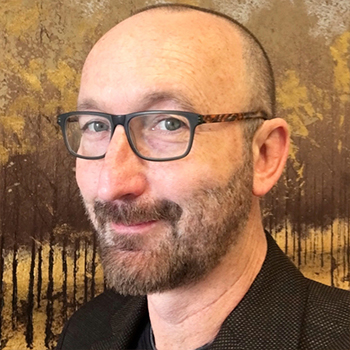By Don Clifton, LMHC
 Therapy. What do you think when you hear this word? To me, “therapy” reads like an ink blot test. As we project our expectations and beliefs onto the shape, we find our interpretations saying more about us than the form on the paper. Inputs from our culture, our family, and the media can distort the reality of this amorphous, inky word we call “therapy.”
Therapy. What do you think when you hear this word? To me, “therapy” reads like an ink blot test. As we project our expectations and beliefs onto the shape, we find our interpretations saying more about us than the form on the paper. Inputs from our culture, our family, and the media can distort the reality of this amorphous, inky word we call “therapy.”
As a therapist, I wanted to challenge five common misperceptions head-on. As you read, test your beliefs against each of these statements and see what new questions come up for you.
- Talking with my friends is just like going to therapy.
Fortunately, this statement is untrue for many reasons- all of which are healthy. Unlike a good friend, a therapist can be more objective with you. A therapist has had years of training around ways to be helpful to you, within the boundaries of a healing relationship. A therapist must also operate within a strict set of ethical rules and laws, including those pertaining to confidentiality. Put simply, a therapist keeps your private stuff private, which is not always true of conversations with friends.
- Therapy is only for “crazy people” or those who can’t deal with life on their own.
Thankfully, these falsehoods and destructive stereotypes are slowly (though stubbornly) fading away. The truth is that therapy varies widely in terms of its applications. While it’s shown to be helpful in dealing with severe problems, therapy has also proven useful in maintaining wellness, improving relationships, and clarifying what one wants to do with one’s life. These are common goals to nearly everyone, in all stages and walks of life.
- Therapy is a long commitment.
As with any treatment, there are times when brief bouts of therapy are appropriate and very beneficial. Maybe you are going through an adjustment or just need enough help to get unstuck and move on with life. The reality is that significant change doesn’t always involve years of therapy.
- Therapists are stoic humans who sit stone-like in sessions, then float about their homes in comfy robes, while sipping herbal tea and reciting Zen koans.
Therapists have received extensive training to be helpful, but otherwise remain plain old humans. It’s true that most of us enjoy herbal tea, mostly because it’s delicious. We also lead lives outside of work, just like everyone else. Therapists go hiking, play guitar, ride motorcycles, watch good (and bad) movies, and have relationships. Like our clients, we encounter obstacles, feel stuck, and often seek counseling ourselves. We empathize with the issues and feelings you may hold because we too have had to deal with life. Most modern therapists are more collaborative and less “ivory tower” academic than portrayed in popular roles through the media. The stoic, chin-scratching, hmmmm… stereotype of a therapist is usually no longer the reality.
- Therapy is an expensive financial investment and justifying the cost can be difficult.
Let’s get economical for a minute: Any investment boils down to two concerns: price and value. Let’s argue value first. We are constantly bombarded with things we “need” to buy. Many of these possessions will go out of style, break or become obsolete, with technology leading this trend. (Sorry, Seattle!) Our constant in life is that we will always be living with some version of ourselves, and spending time with ourselves is a key part of being human. Life is ultimately more enjoyable if we like who we are, instead of being at constant odds with our thoughts, feelings, behavior, and relationships. This is where therapy can help, as bettering oneself is one of the best investments a person can make. For example, it’s well documented that happiness gained through experiences is deeper and more fulfilling than through the pursuit of possessions. A savvy investor would reasonably want to enhance their “experience investment” with the best version of themselves, gaining the greatest return for each experience in life. By this logic, there is no greater value.
Then there’s price. Therapy is covered by many insurance plans- and when this isn’t available, many therapists make a sliding scale available. Greenlake Wellness Group works hard to present these options for clients as well. There are also programs such as the Open Path Collective, where therapists agree to a reduced fee for low income applicants.
There are many misconceptions about therapy, and I hope you’ve enjoyed reading through my top 5. Therapy is truly a powerful tool and one of the most effective for making changes in your life.
If you’d like to know if therapy makes sense for you, feel free to contact me for a free consult: don@greenlakewellness.com


